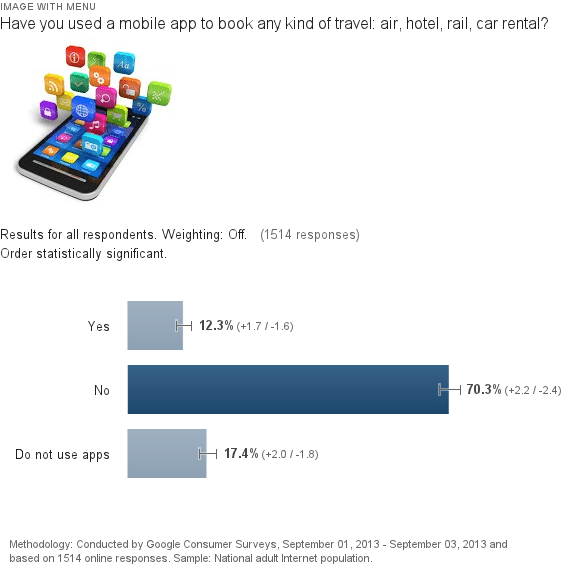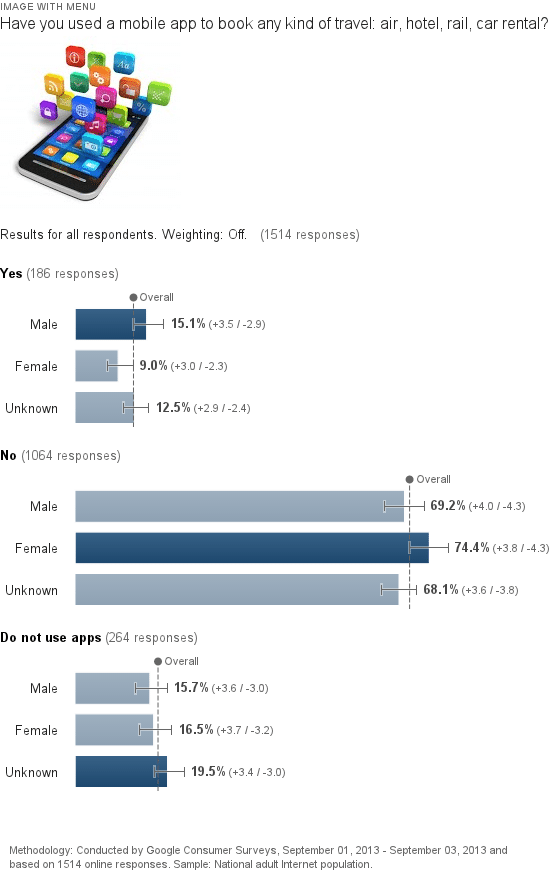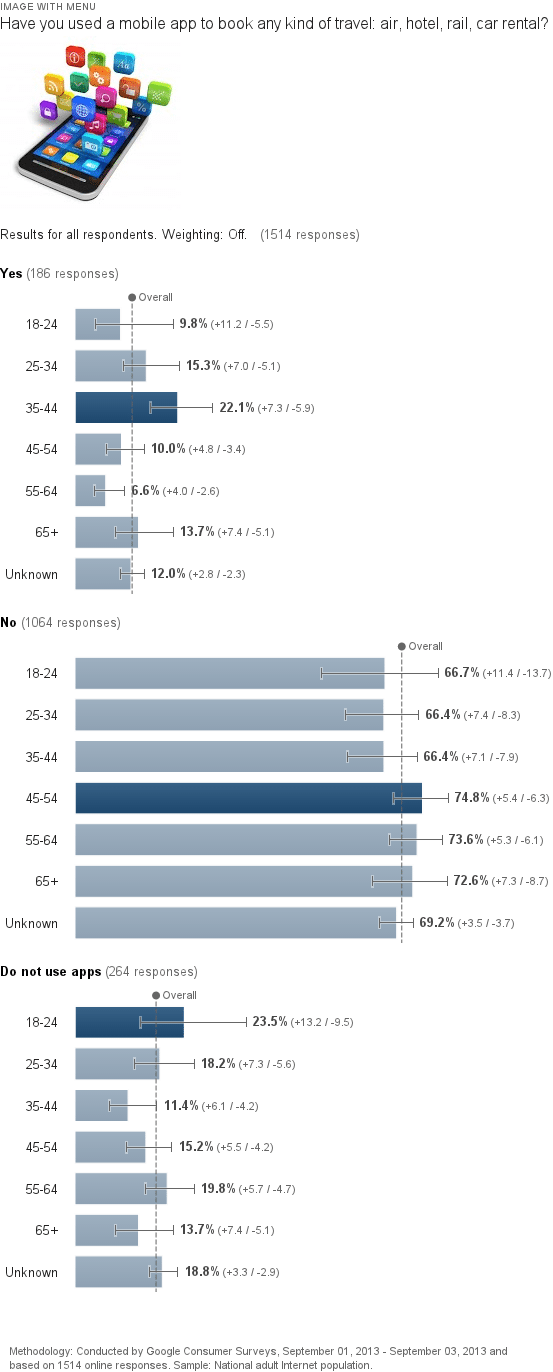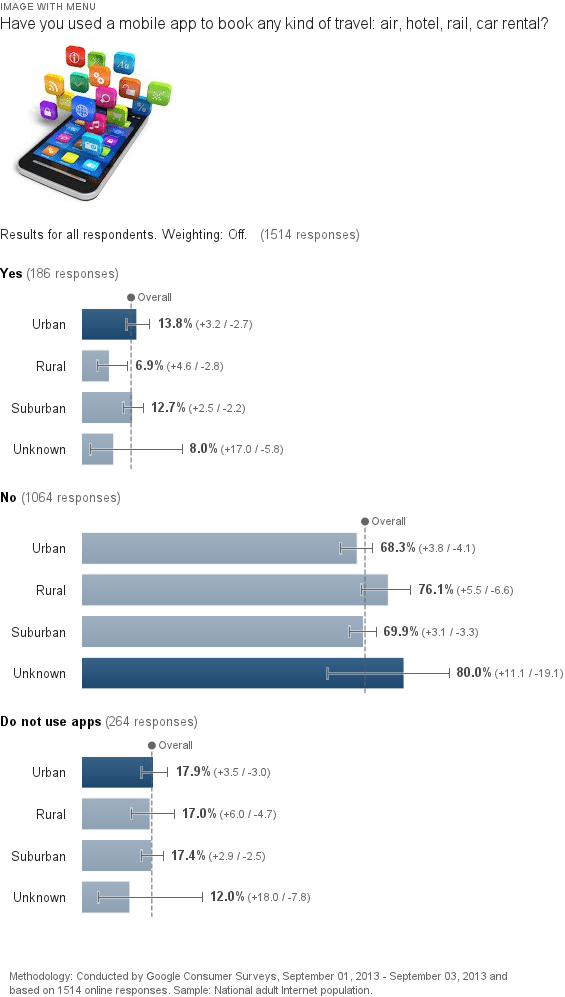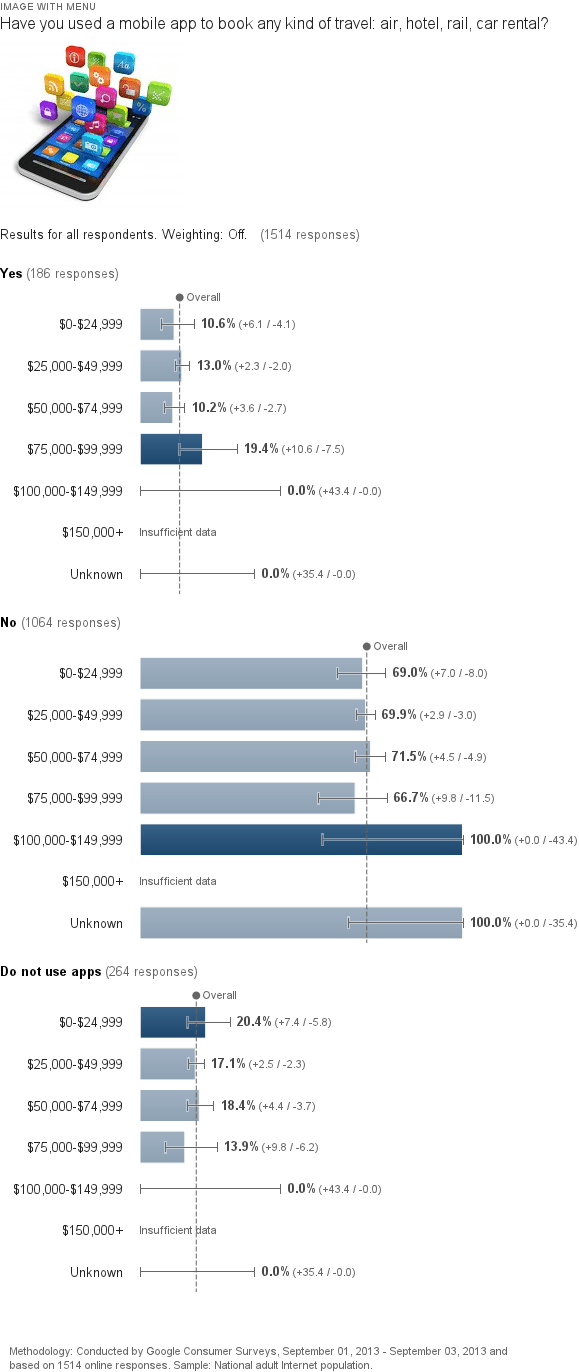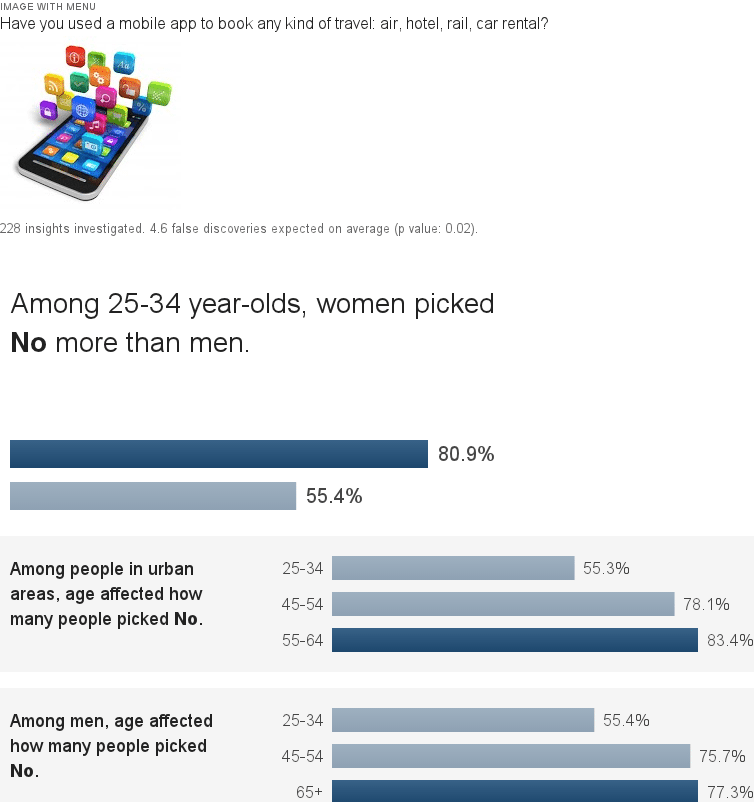Skift Take
Mobile booking is still in its very stages, and lot more education needs to be done on the consumer end to increase adoption at an even faster rate. Expect more startups to come into the sector, even as larger players continue to make big investments in it.
Editor’s Note: Recently we launched a new weekly survey series Skift Asks to test out assumptions travel industry insiders have about various consumer travel issues, trying to bridge the disconnect between the industry and consumers. See previous Skift Asks here.
Important: The survey is not done on Skift readers, but general U.S. internet adult population, through Google Consumer Surveys.
This week, we are tackling the subject of mobile booking, an area of frenzied activity in the online travel space. Tens of millions of venture money is being invested in mobile booking startups like HotelTonight, companies like LastMinute are actually moving to mobile wholesale, larger booking giants like Priceline and others have been pushing mobile booking, and travel brands themselves have been saying their mobile bookings have been rising dramatically over the last year or so. Even new giants like Airbnb say mobile instant bookings are its future.
Add to that, consumers aren’t sticking to one medium, jumping from desktop to mobile and back throughout their travel researching and booking process.
As is our wont, we decided to go beyond industry FUD and ask the consumers about mobile booking and their adoption of it. And so far we are in the very early innings, according to results of our “Skift Asks” survey this week.
This single-question survey was administered to the U.S. internet population from Sep 1-Sep 3, 2013, through Google Consumer Surveys, with 1,514 responses. The methodology is explained here.
The headline takeaway: About 70 percent of adult U.S. Americans on Internet have not used mobile apps to book any kind of travel: air, hotel, rail, or car rental. Only about 12 percent plus have. In a year, that figure is likely to rise dramatically, with the increasing adoption of smartphones in the country. According to data from Pew, about 50% of adult Americans now have smartphones.
Interestingly, about 17.4 percent of adult Internet Americans have not used apps, the survey says, and the actual number is likely different from this, considering how some people confuse apps with mobile web.
Key Takeaway: Men have booked through mobile apps more than women.
Key Takeaway: The 35-44 age range is the key growth area for mobile app booking.
Key Takeaway: U.S. consumers behave almost exactly the same across the country.
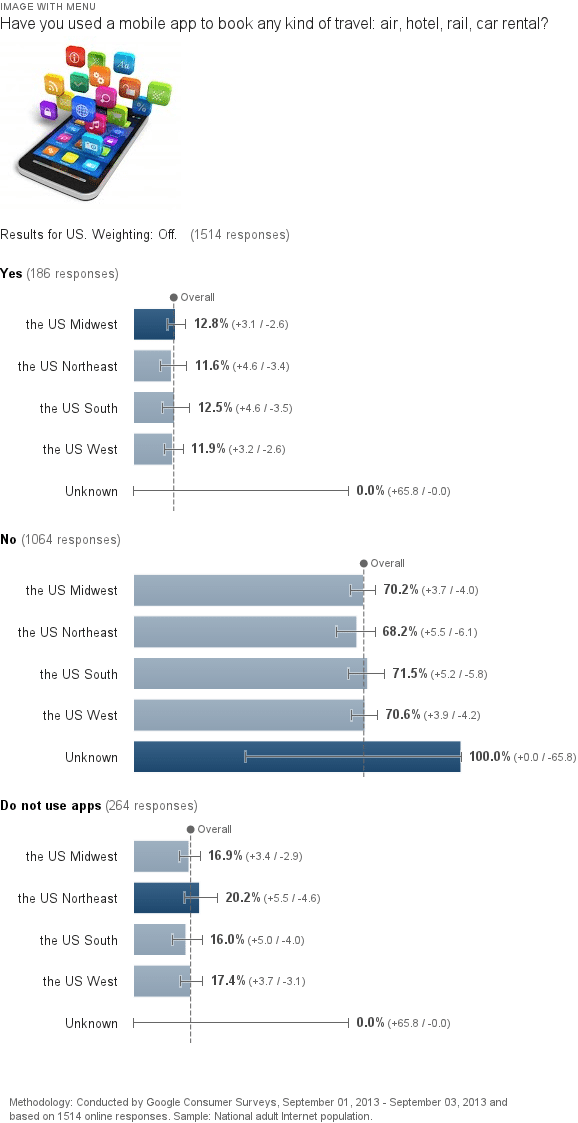
Key Takeaway: Users in the city more mobile app booking savvy, as it to be expected.
Key Takeaway: Mid-level salary makers — who likely travel more for business — are the big growth area.
Key Takeaway: Educating women 25-34 could grow the market a lot faster.
The Daily Newsletter
Our daily coverage of the global travel industry. Written by editors and analysts from across Skift’s brands.
Have a confidential tip for Skift? Get in touch
Tags: skiftasks
Photo credit: The HotelTonight app on an iPhone. Rafat Ali / Skift

